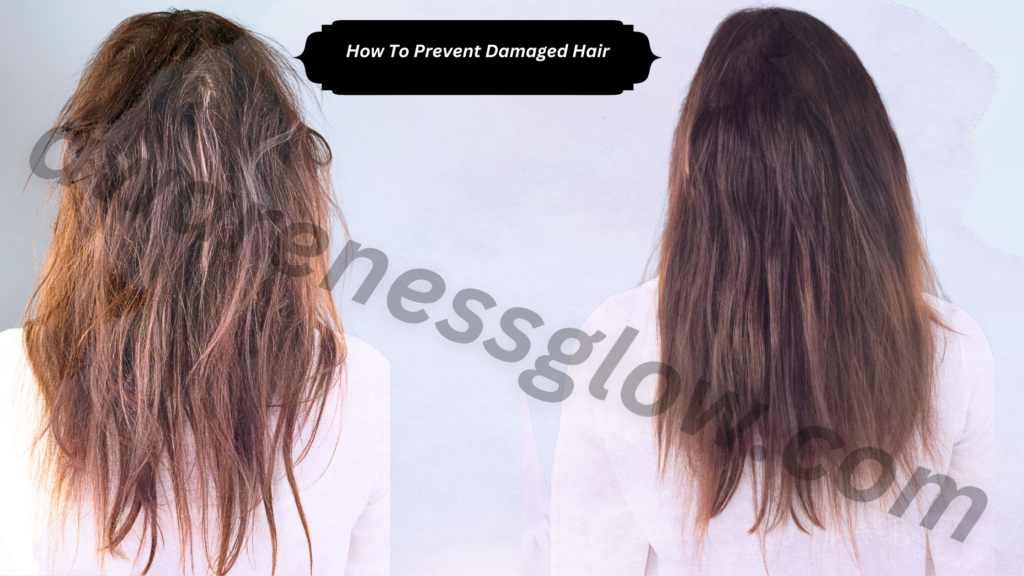
How To Prevent Damaged Hair
Introduction;
Although hair growth is necessary for personal hygiene and self-confidence, our best efforts are occasionally not enough to stop it. Effectively addressing the problem depends on knowing the causes of this stoppage. Hormonal imbalances, genetic predispositions, and lifestyle choices can upset the natural hair growth cycle. Restoring normal hair growth and attaining the intended results start with identifying these elements.
Is my hair loss stopping able?
Workable Techniques to Fight Hair Loss
Eat in balance.
Good hair growth depends on a balanced diet high in minerals and vitamins. Important nutrients are:
Iron:
An iron shortage can result in hair loss. Add lentils, red meat, and spinach, among other foods.
Vitamin D:
Low levels of this vitamin have been linked to hair loss. Foods high in fatty fish, fortified dairy products, and sunlight can help.
Avoid too much stress, as it can cause hair loss. Mindfulness approaches, physical activity, and counseling can help control stress. Furthermore, activities like yoga and meditation can help lower stress.
What disorder results in the non-growth of hair?
The autoimmune disorder known as alopecia areata causes abrupt, patchy hair loss due to the immune system’s erroneous attack on hair follicles. Severe cases can develop into alopecia totalis, which causes total scalp hair loss, or alopecia universalis, in which hair loss affects the entire body.
Commonly referred to as either male or female pattern baldness, hormonal fluctuations, and genetics mostly cause androgenetic alopecia. Usually beginning at the hairline or crown, it causes hair thinning and slow loss.
How would one address the hair fall issue?
If hair loss continues even with self-care routines, see a dermatologist or trichologist. They can identify underlying problems and recommend suitable courses of action, including hair transplants.
For more extreme forms of hair loss, consider hair transplant surgery.Platelet-rich plasma injections, known as PRP therapy, help to induce hair growth.These treatments help with hair fall.
- A topical over-the-counter remedy meant to encourage hair growth.
- Prescription drugs called finasteride help with hormone-related hair loss.
- Essential oils such as peppermint or rosemary could assist in hair growth stimulation.
Can we stop hair loss?
Among the several causes of hair loss are genetics:
Hereditary disorders, including either male or female pattern baldness.
- Hormonal Changes:
Disorders including androgenic alopecia or thyroid imbalances. Scalps infections or alopecia areata are among them.
- Medications:
Side effects from medications taken for different medical conditions.
- Factors related to lifestyle:
bad diet, stress, inadequate hair care.
Finding the basic reason for hair loss is essential before beginning any treatment. To properly diagnose the problem, see a trichologist—a specialist in hair and scalp conditions—or a dermatologist.
Normal hair loss is what?
Knowing Normal Hair Loss:
The natural hair growth cycle causes daily hair loss. On average, people lose between fifty and a hundred hairs every day. This shedding is normal for the growth cycle and lets fresh hair grow instead of old ones.
When Should One See Counsel:
Although some hair loss is expected, if you experience it, you should see a healthcare provider.
Either sudden or excessive hair loss:
- Losing more than one hundred hairs every day or noticing significant hair loss in specific areas.
- Bald areas or noticeable thinning of hair that advances quickly.
Other signs of an underlying condition could be itching, redness, or scalp pain.Although natural, notable variations in the quantity or pattern of shedding should be investigated. Knowing the usual spectrum of hair loss and the elements influencing it will enable you to control your hair condition properly. If unsure, it is always a smart idea to get professional advice to make sure you handle any possible problems early on.Please get in touch for further specific advice or help on hair loss and care!
